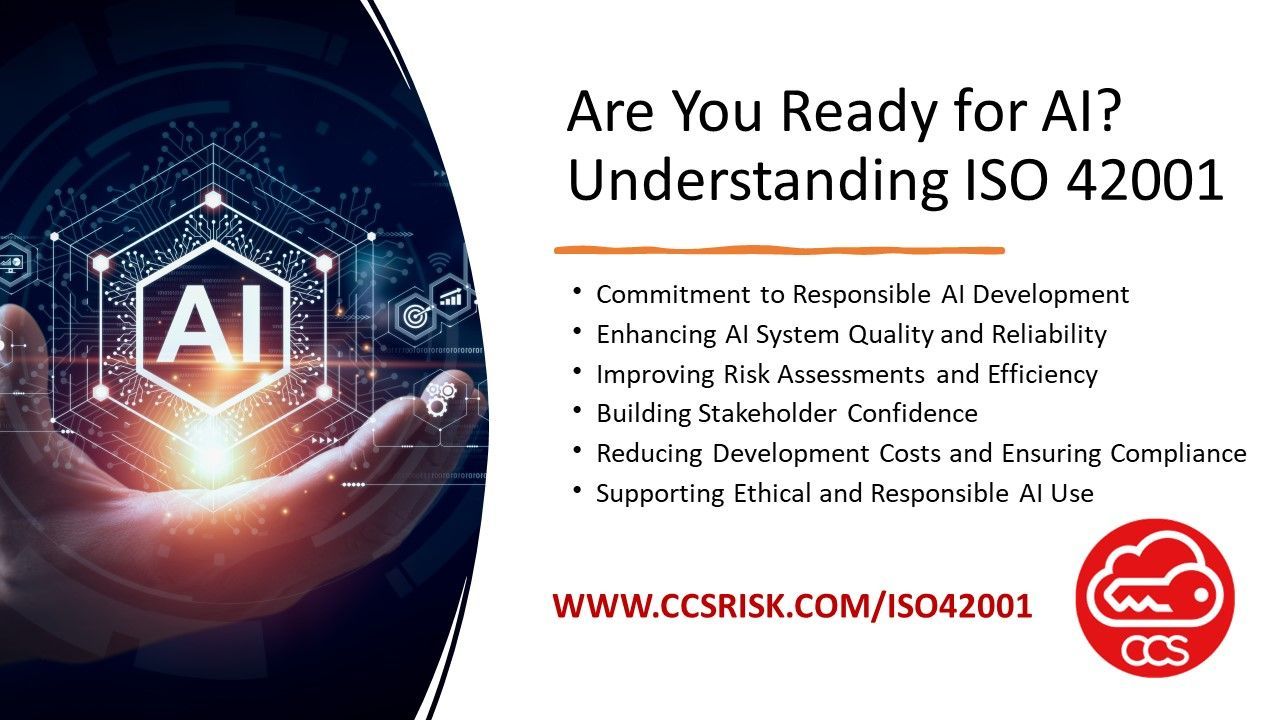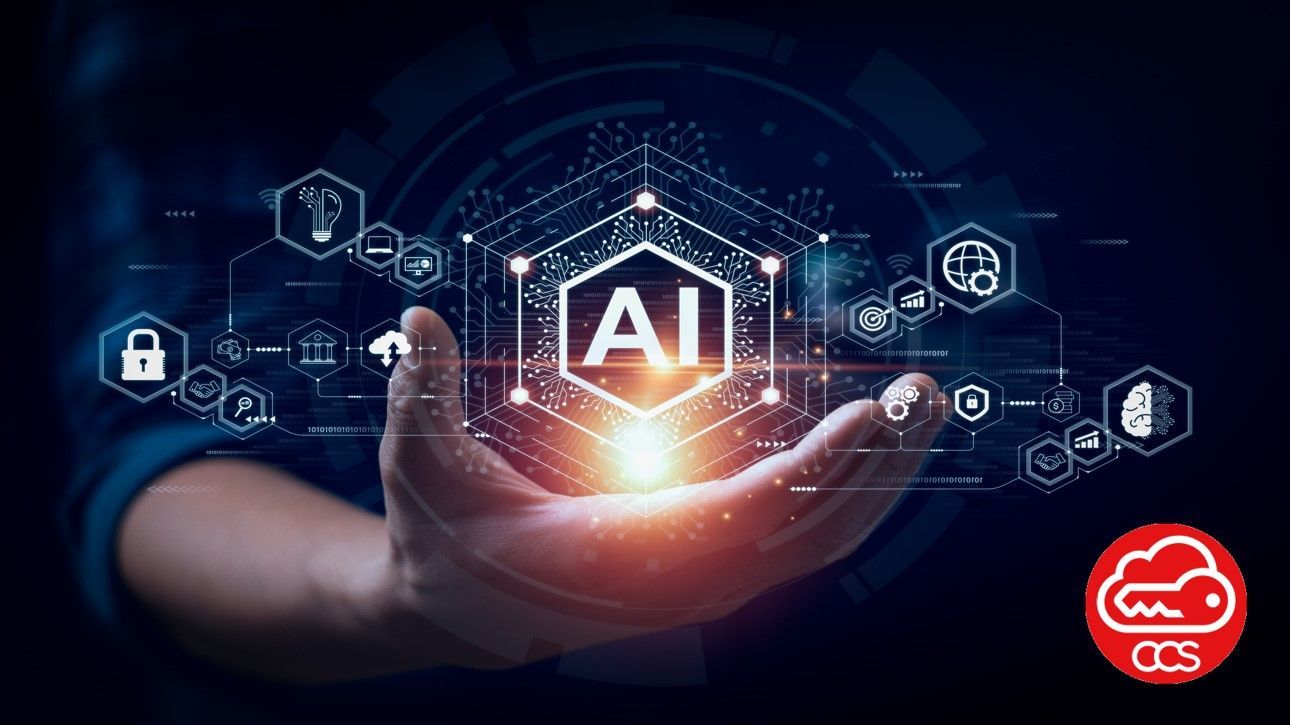Are You Ready for AI?
Understanding ISO 42001 and the Responsible Use of Artificial Intelligence
As Artificial Intelligence (AI) continues to transform industries and redefine business processes, organizations are increasingly adopting AI technologies to gain a competitive edge. However, with the power of AI comes significant responsibility. The question businesses need to ask themselves is not just whether they are using AI, but if they are using it ethically and responsibly. This is where ISO 42001: Artificial Intelligence Management System (AIMS) becomes crucial.
What is ISO 42001?
ISO 42001 is an international standard that provides a comprehensive framework for the responsible management of AI systems. It guides organizations in the ethical development, implementation, and maintenance of AI technologies, focusing on key aspects such as risk management, transparency, data quality, and continuous improvement.
The Core Framework of ISO 42001
- Ethical AI Development and Data Quality Assurance
- ISO 42001 emphasizes the need for ethical considerations in AI development. This includes ensuring that AI systems do not perpetuate biases, and that they respect human rights and societal values. The standard also underscores the importance of data quality, as the data used to train AI systems must be accurate, representative, and free from biases.
- Risk Management and Transparent Decision-Making
- A core component of ISO 42001 is its focus on risk management. This involves identifying potential risks associated with AI systems, from technical failures to ethical dilemmas, and implementing measures to mitigate these risks. Transparency in decision-making processes is also crucial, allowing stakeholders to understand how and why AI systems arrive at certain conclusions.
- Performance Measurement and Continuous Improvement
- ISO 42001 encourages both quantitative and qualitative performance measurement. This helps organizations assess the effectiveness of their AI systems and make necessary adjustments. Continuous improvement is a key principle, ensuring that AI systems evolve in line with technological advancements and societal expectations.
Aligning with the EU AI Act
ISO 42001 aligns closely with the EU AI Act, which classifies AI systems into prohibited and high-risk categories. The standard helps organizations navigate these classifications, ensuring compliance with regulations that govern the ethical use of AI technologies. This alignment is particularly important for companies operating within the European Union or those that serve EU customers.
Why ISO 42001 Matters for Your Business
- Commitment to Responsible AI Development
- Adopting ISO 42001 demonstrates a business's dedication to responsible AI development. This can build trust with stakeholders, including customers, investors, and regulatory bodies, by showing a commitment to ethical practices and the protection of personal data.
- Enhancing AI System Quality and Reliability
- The standard helps businesses ensure that their AI systems meet high-quality standards, are secure, and can be traced back to their origin. This traceability is essential for accountability and transparency, particularly in high-stakes industries like healthcare and finance.
- Improving Risk Assessments and Efficiency
- Following the ISO 42001 framework allows businesses to identify and mitigate potential risks associated with AI systems more effectively. This leads to more efficient development and deployment processes, reducing the likelihood of costly errors and rework.
- Building Stakeholder Confidence
- When businesses adhere to ISO 42001, they provide assurance that their AI systems are reliable and trustworthy. This increased confidence can lead to greater adoption and acceptance of AI technologies across various sectors.
- Reducing Development Costs and Ensuring Compliance
- The standard can streamline AI development processes, resulting in cost savings. Additionally, it ensures that AI systems comply with relevant regulations and standards, helping businesses avoid legal issues and penalties.
- Supporting Ethical and Responsible AI Use
- ISO 42001 provides a framework for ethical AI use, which is increasingly important as AI applications expand into sensitive areas such as healthcare, finance, and law enforcement.
Balancing Governance and Innovation
While ISO 42001 provides a structured approach to managing AI systems, it also allows for flexibility and innovation. This balance is crucial for businesses to stay competitive in the rapidly evolving AI landscape, helping them manage both the risks and opportunities associated with AI.
Building a Trustworthy AI Management System
By adopting ISO 42001, businesses can create a robust AI management system that stakeholders can trust. This trust is essential for the widespread adoption and acceptance of AI technology, paving the way for innovations that are both cutting-edge and ethically sound.
Conclusion: The Path Forward with ISO 42001
As we move towards a future increasingly dominated by AI, the importance of responsible AI management cannot be overstated. ISO 42001 offers a comprehensive framework that not only ensures compliance with ethical standards but also enhances the overall quality and reliability of AI systems. For businesses, adopting this standard is not just about regulatory compliance; it's about building a sustainable and trustworthy AI ecosystem that can thrive in the long term.
Are you AI-ready for the future? ISO 42001 provides the tools and guidance needed to navigate the complex landscape of AI development and deployment, ensuring that your organization is prepared for the ethical and compliance challenges that lie ahead. Embracing this standard is a proactive step towards building a responsible AI strategy that aligns with global best practices and fosters stakeholder trust





